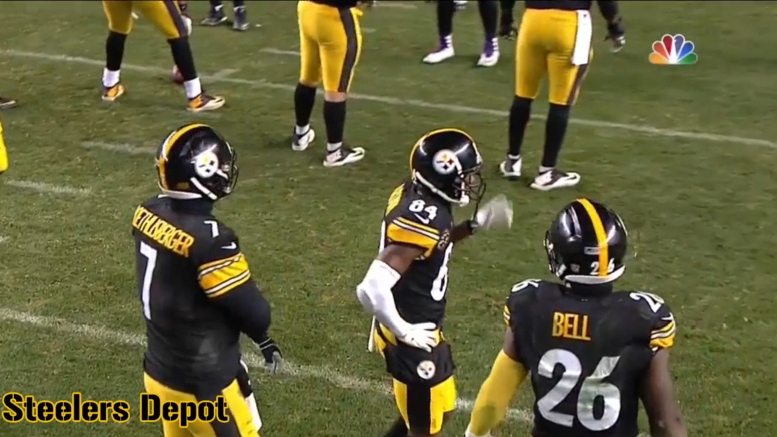Whenever the Pittsburgh Steelers have a high-profile free agent to deal with, especially when the negotiations are contentious, their patterns and contract histories come up. In fact, it gets brought up every offseason when we talk about the free agent market. The reality is that their contracts differ from most teams, in that they guarantee less money on average than just about everybody else.
Take Antonio Brown’s four-year, $68 million extension, for example. The only bit of his salary that was guaranteed was his $19 million signing bonus, which represents a guaranteed portion of his contract at just 27.9 percent. Compare that to other contracts. DeAndre Hopkins received 45.1 percent of his contract as guaranteed money. A.J. Green’s was 44.6 percent. Including rookie contracts, there are nearly 50 wide receivers whose contracts include guaranteed portions north of 50 percent.
This is interpreted as a disincentive to sign with the Steelers. After all, logically, the lower percentage of your contract that is guaranteed, the lower the likelihood that you see the vast majority of the value of the contract that you originally signed.
But the Steelers’ reputation needs to be considered. While they offer comparatively little in guarantees (which is done in part to allow them to create flexibility, as we see in their restructuring of contracts), the truth is that they pay out closer to the full value of the contracts that they give players than do the majority of teams, and that is especially the case for their own homegrown talents.
According to the research of Ian Whetstone, which he shared on Twitter yesterday, the Steelers do an exceptionally good job of holding good to their ends of the bargains they make with their own players. His numbers show that the team has signed their own players to $774,826,457 in (second) contracts since 2002, and they have paid out $682,288,369 of that value, which represents and 88 percent payment rate. I don’t have similar numbers to compare to other teams, but I’m willing to speculate that that ranks among the very highest of the NFL.
Since 2002, the Steelers have signed homegrown players to $774,826,457 worth of second contracts through 2017. They’ve paid out $682,288,369 of that amount. That’s 88%. When people say that NFL contracts don’t mean anything, it largely doesn’t apply to homegrown Steelers.
— Ian Whetstone (@IanWhetstone) March 7, 2018
He also points out that just $196,481,000 of that original value stated represented money that was guaranteed upon signing, which, he says, means that greater than 70 percent of the money that they have paid out to their own players in free agent deals or extensions represents salary that was not guaranteed.
Whetstone even went beyond that to look at further contracts, including third, fourth, and even fifth contracts, which are obviously rare, and found that the team has paid out roughly 78 percent of those contracts.
When you consider that many of those late-career contracts include what are essentially phantom years in order to spread out the cap hit (see, for example, Troy Polamalu’s late-career extension, as well as Hines Ward’s final deal), that is an even more impressive demonstration of commitment to living up to their end of contracts.
The Steelers’ reputation should be one of a team that hands out contracts to players that they have every intention of living up to. Very few players who signed second contracts failed to see at least two years of the deal. That they guarantee little up-front should only be a consideration regarding up-front cash payment.








